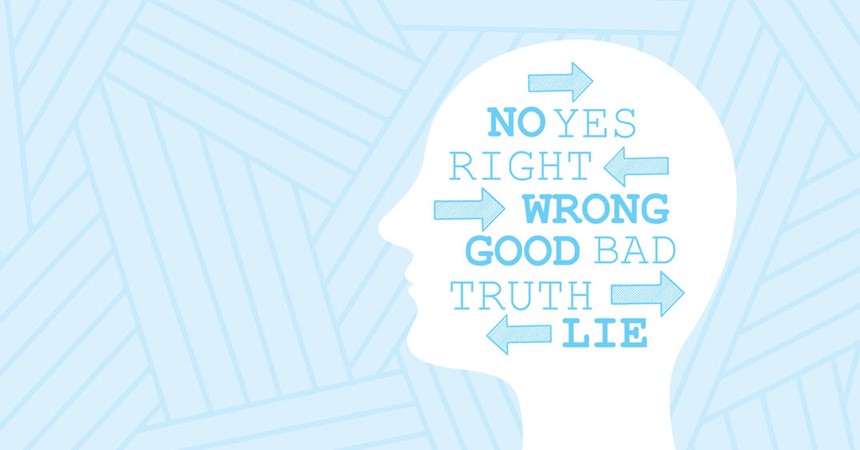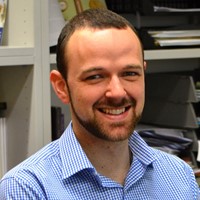The Simpsons often captures popular understandings of complex ideas. Typically, when we use the word ‘conscience’ we think of that guilty feeling we experience after doing something wrong. Within the Catholic tradition the idea of conscience is, I believe, much richer. Well understood, it has the capacity to tell us something about ourselves, and to shine a spotlight on those times when we lapse morally. Had this teaching been more thoroughly understood, and better practised, it’s likely the horrendous abuses within the Church that have rightly been brought to light would have been avoided, or at least reported more readily. More later, but first, how might we understand conscience?
Let’s begin with another example. Markus Zusak’s The Book Thief tells a story of World War II Germany. Here the narrator reflects on the thought process of a character called Alex Steiner:
Point One: He was a member of the Nazi party but he did not hate the Jews, or anyone else for that matter.
Point Two: Secretly, though, he couldn’t help feeling a percentage of relief (or worse – gladness!) when Jewish shop owners were put out of business – propaganda informed him that it was only a matter of time before a plague of Jewish tailors showed up and stole his customers.
Point Three: But did that mean they should be driven out completely?
Point Four: His family. Surely, he had to do whatever he could to support them. If that meant being in the Party, it means being in the Party.
Point Five: Somewhere, far down, there was an itch in his heart, but he made it a point not to scratch it. He was afraid of what might come leaking out. (Zusak, 2007, p. 65)
Point five captures the first dimension of conscience. Often we experience that itch in our hearts – a suspicion that perhaps our treatment of others falls short, how we spend our money isn’t really best for our families, or there’s something amiss in the vast chasm between rich and poor. That itch can be considered a call to think more deeply about the decisions we make and the kinds of people we are, and that’s the first dimension of conscience in Catholic teaching. More significantly, that call is the voice of God, “echoing in our depths” as the Second Vatican Council put it.
When we stop and listen, we begin to consider, ‘What should I do here? What kind of person should I be?’ We don’t know the answers immediately, so we need to search for them. Our ability to undertake this search is the second dimension, and it tells us that conscience functions best when it is formed. We don’t expect young children to navigate the complex moral terrain of friendships – indeed we often witness their crossing boundaries; sometimes they gossip, lie, exclude, even lash out physically. However, as we develop we learn to moderate these ways of relating to one another (unless we’re malicious people) which learning enables us to cultivate more stable friendships. The same applies to other areas – it’s only with formation that we know how to respond to the call, and formation is a life-long process. Religious folks will undergo that formation in dialogue with their tradition but this is not only the domain of religion. We all seek to form our consciences in dialogue with sources of wisdom around us: friends, family, trusted leaders, great literature and our own capacity to reason.
Listening to that call and forming our consciences only take us so far, though. Eventually, we will need to make some form of commitment: if my formed conscience leads me to believe this or that way of life is the right one, will I now commit to that? This becomes a key question, because it normally challenges us towards moral transformation. If, in forming my conscience, I realise how I spend my money isn’t the best way for my family, it can take a lot of effort to change, and may involve a good deal of sacrifice. This choice to commit − or not − is the third dimension of conscience.
So within the Catholic tradition, conscience is a far richer concept than Bart’s ‘guilty conscience’. It invites us to listen to the call to a moral life, to search for moral wisdom so we can understand what we might be called to do or the kinds of people we might be challenged to be, and finally to commit to the fruits of that search. The Catholic tradition places such commitment at the heart of our moral lives: conscience is primary in the sense that, if we have sincerely undertaken this process, we need to see it through to the level of commitment. Hence, the role of the Church is not to make decisions on behalf of God’s people, but to provide the kind of formation that empowers people to respond to conscience’s call in light of the Gospel. As Pope Francis wrote recently, the Church is “called to form consciences, not replace them”. Conscience is primary, but it must be formed: there is little value in my following my conscience if I have not done the work required to form it, just as there would be little value in my trusting my driving skills if I had not done the work required to learn how to drive well.
Such formation might be limited, of course, and it could be that in retrospect we discover our formation was inadequate. Since we grow over time, this is to be expected. We can all recall notions we once believed firmly, only to realise later that they were incorrect. Hence we must have a degree of humility, and a willingness to be wrong. That also involves some self-forgiveness, and the knowledge that we’re not always fully accountable when we get it wrong. This should be of great comfort!
On the other hand, we can also observe that it is all too easy to hijack conscience; to ignore the call to moral responsibility; to form a conscience that bows to false authority or personal interest before it protects vulnerability, or to lack the courage to commit to standing up for fear of reprisal or peer pressure. This may help us to understand how a Church with a rich ethical tradition has been complicit in the horrendous abuses brought to light in the recent Royal Commission. We cannot know what was happening in the consciences of those who committed such horrible abuse or allowed it to happen, but we can examine our own consciences and be vigilant, to ensure it does not happen again.
Dr Dan Fleming is Dean of Studies and Lecturer in Theology and Ethics at The Broken Bay Institute. Please visit the Broken Bay Institute. References: Baezer, C (Director) (1993). “Bart the Lover”, The Simpsons episode, Twentieth Century Fox. Zusak, M. (2007) The Book Thief London: Transworld Publishers.























































































